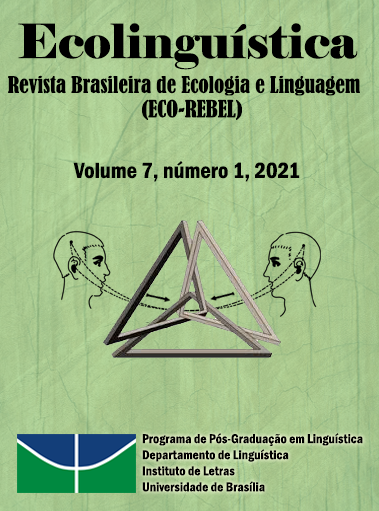Adam Makkai
Abstract
Adam Makkai nasceu em 16 de dezembro e 1935, em Budapest, Hungria, em uma família de escritores, juízes e ministros da Igreja Húngara Reformada. Ele fez os dois primeiros anos escolares em alemão antes da guerra. Após a guerra aprendeu também russo e francês. Depois de um breve período estudando Direito na universidade, ele começou a estudar francês como opção principal durante dois anos, mas seus estudos foram interrompidos pela Revolução e ele escapou para o Oeste em 1956. Chegou nos Estados Unidos em janeiro de 1957 e foi logo admitido na Universidade de Harvard, onde recebeu um B.A cum laude em russo como primeira opção e francês como segunda. De 1958-1960 Makkai passou dois anos no Havaí, onde lecionou alemão, russo, francês e latim. Em seguida ele ganhou uma bolsa para a Universidade de Yale, onde concluiu um M.A. e Ph.D. em Linguística Geral (1962, 1965), sob a orientação de Sydney M. Lamb, motivo pelo qual tornou-se um praticante de Linguística Estratificacional e um crítico ferrenho da Gramática Gerativa. A tese de doutorado foi sobre a estrutura das expressões idiomáticas em inglês (Idiom structure in English), publicada como livro em 1972 (Haia: Mouton), com o mesmo título.
Downloads
Downloads
Published
How to Cite
Issue
Section
License

This work is licensed under a Creative Commons Attribution-NonCommercial-NoDerivatives 4.0 International License.
Authors who publish in this journal agree to the following terms:
Authors retain copyright and grant the journal the right of first publication. The work is simultaneously licensed under the Creative Commons Attribution License allowing the sharing of the work with acknowledgment of the authorship of the work and initial publication in this journal.
Authors are authorized to enter into additional contracts separately for non-exclusive distribution of the version of the work published in this journal (e.g., publishing in institutional repositories or as book chapters), with acknowledgment of authorship and initial publication in this journal.
Authors are allowed and encouraged to post and distribute their work online (e.g., in institutional repositories or on their personal page) at any point before or during the editorial process, as this can bring about productive revisions as well as increase impact.
Citation of published works (See The Effect of Free Access).



3.png)



